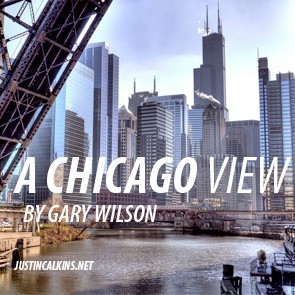Commentary
If you thought partisanship on how to stop the advance of Asian carp had waned, think again.
Representatives of the region’s mayors and governors released a study this week that called for construction of permanent physical barriers in the Chicago Area Waterways System. The system is the primary vector for Asian carp.
Media coverage was comprehensive and reaction was swift and divided.
Media – print, electronic and social – from as far away as Seattle picked up the story and featured it prominently.
Twitter lit up with the results of the study.
Enviro groups, who generally favor physical separation of the Great Lakes from the Mississippi River, had their well-orchestrated and supportive press releases on the wires before noon.
A key business coalition historically against separation quickly condemned the report. The study’s findings were also met with a quick rebuke by the Indiana Congressional delegation.
Chicago and Illinois politicians listed by the study’s sponsors as supportive of the report were actually more acknowledging than supportive. No change there.
And the Joyce Foundation praised the effort in a Chicago Tribune Op/Ed. Why not? It funded the study as it historically has funded Great Lakes work by environmental groups.
Where does that leave us?
Where we started.
After a year-long effort, on which most interested parties had some input, those who were for separation are still for it. Those against remain against.
And did anyone really study the report including its costs before reacting?
Reactions were more about protecting turf and staying on message. They reminded me of the state of our political process in  Washington.
Washington.
No one is listening and everyone is talking past those with opposing views.
Actually, there was one organization that reacted responsibly.
Chicago’s Metropolitan Water Reclamation District, the agency that manages the plumbing for greater Chicago, made the right call.
Allison Fore, a district media representative, said in a written statement that the district is “neutral” on watershed separation.
“The report needs to be reviewed in detail to sift through the ideas before any substantial comments can be made.”
There’s a thought. Study the report before commenting.
Or go farther.
What if interested groups with different constituents and agendas had declared a one month moratorium on public comment? They could have engaged in meaningful dialogue and then offered considered public statements.
I know that hardened positions can change over time and maybe that’s what will happen here.
Separating the Great Lakes from the Mississippi River is a major issue with huge costs and significant impacts on the economy and ecology of the region.
It deserves better than the self-serving and narrow-minded rhetoric that currently dominates the debate.
Let’s craft our messages in a manner that invites dialogue on our differences with an eye on working together to achieve results.
Because behaving like our dysfunctional Washington politicians is no way to support the Great Lakes.
